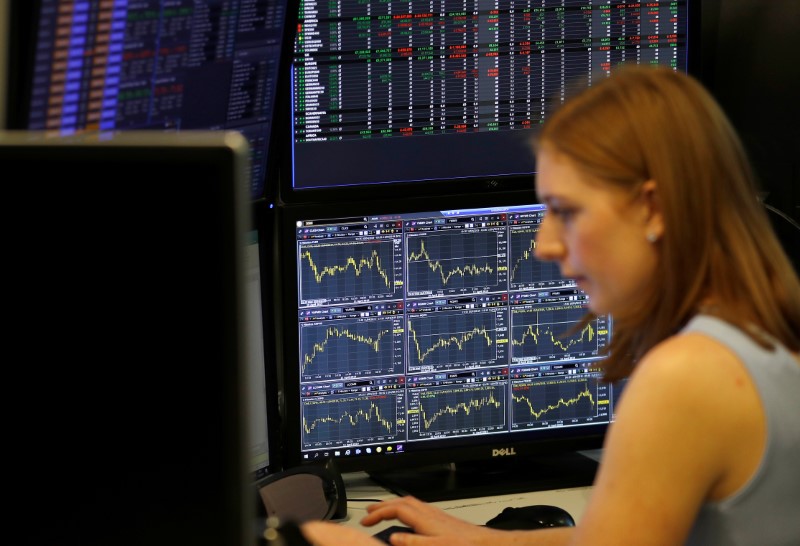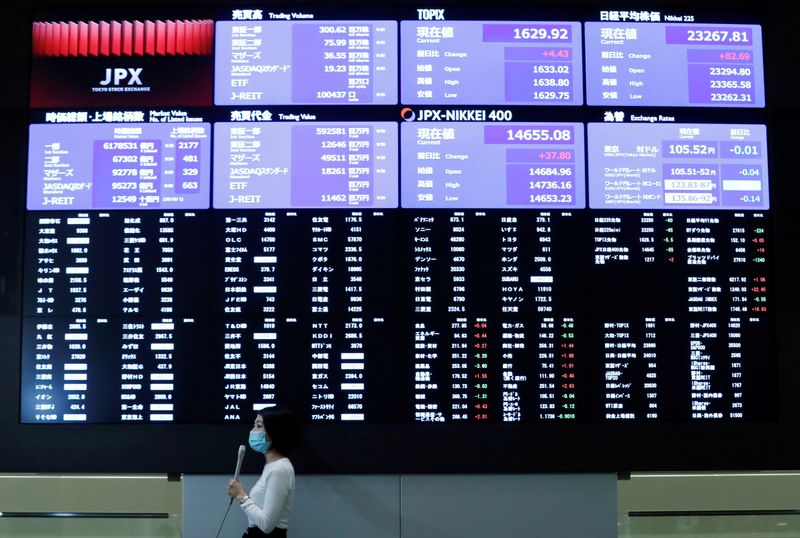LONDON (Reuters) - European stocks recovered from early losses on Friday, following a bearish Asian session where investors adjusted their risk exposure before the U.S. elections two weeks away. Record COVID-19 cases in Europe also weighed on sentiment.
MSCI world equity index, which tracks shares in 49 countries, slipped as much as 0.2%.
By 0825 GMT, MSCI's main European Index was up 0.4% and Europe's STOXX 600 was up 0.2, after initially falling as fears about the economic impact of lockdown restrictions outweighed some strong earnings.
With just two weeks until the U.S. presidential elections on Nov. 3, analysts said that investors were reining in their riskier bets.
President Donald Trump and Democratic rival Joe Biden will debate each other in an event on Thursday which will feature a mute button to allow each candidate to speak uninterrupted.
U.S. fiscal stimulus talks are in focus, as House Speaker Nancy Pelosi set today as a self-imposed deadline for reaching a deal on a coronavirus aid package.
Pelosi said over the weekend that differences remained but that she was optimistic legislation could be pushed through before the election. But markets doubted fiscal stimulus would be passed in the near term.
"The likelihood of a deal taking place appears no more likely now than it was a week ago," said Michael Hewson, chief market analyst at CMC Markets. The lack of action is particularly concerning in light of rising COVID-19 cases in the United States, he said.
"While equity markets appear to be struggling in the short term, the lack of a fiscal stimulus deal in the next two weeks is probably neither here nor there," he added.
"Most investors expect to see some sort of fiscal stimulus in the next six months, whoever gets in, with the only unknown being around the size and scale, and the timing. The problem for stock markets is that they want to see it now."
New, tougher restrictions to limit the spread of coronavirus in Europe also weighed on sentiment. Ireland announced some of Europe's strictest constraints on Monday, telling people not to travel more than five kilometres from home. New restrictions were also approved in the Lombardy region of Italy.
France reported a massive increase in the number of people hospitalised.
The U.S. dollar was steady against a basket of currencies, flat on the day at 93.435 at 0742 GMT. Riskier currencies such as the Aussie and Kiwi dollars were down.
Minutes of the Reserve Bank of Australia's last policy meeting confirmed it had discussed cutting rates and buying longer-dated debt to support the economy and restrain the currency.
The pound edged down versus the dollar and euro, as Brexit negotiations were stuck in limbo. The British government has said it sees no basis to restart trade talks with the European Union unless there is a fundamental change in approach.
Euro zone government bond yields rose, with the benchmark 10-year German yield holding near recent seven-month lows at -0.623%.
Gold edged down while oil prices were little changed after three days of declines on fears that a resurgence of COVID-19 infections would stifle the recovery in fuel demand.
Brent crude futures were trading down 2 cents, or 0.4%, at $42.44 a barrel by 0748 GMT, recovering ground after falling as low as $42.19 earlier in the session.

(This story adds dropped word 'shares' to headline)
